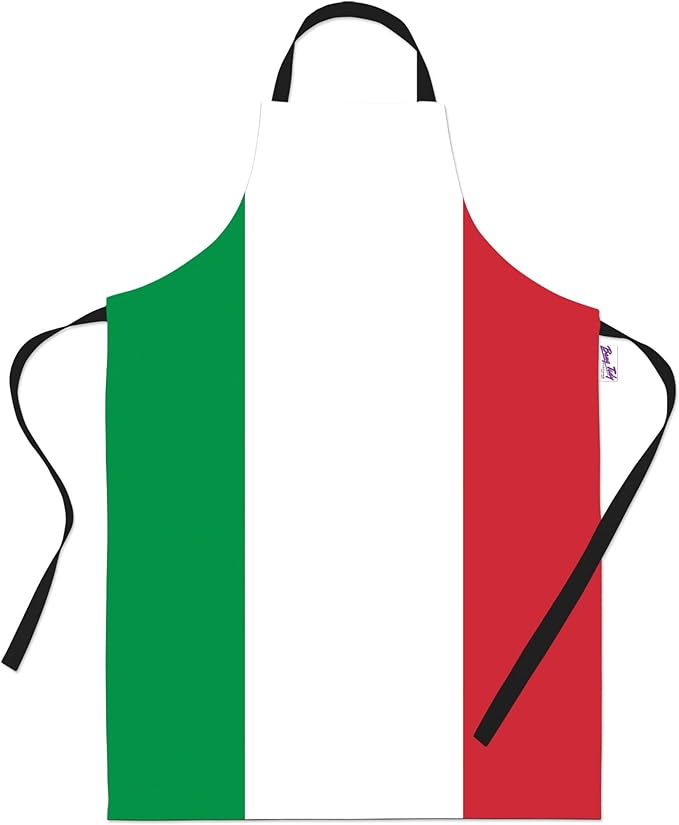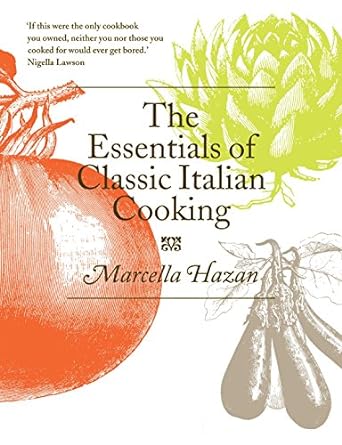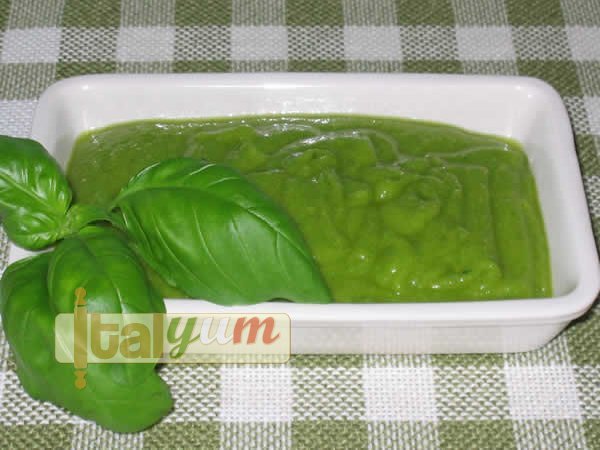
Pesto sauce (Pesto alla genovese)
Pesto sauce is a very popular sauce and nowadays you can easily get many different brands at the supermarket. However, what you buy at the supermarket rarely matches the taste and flavour of home made pesto prepared by the people from Liguria region of Italy (Genoa is the main city). The reason for this is mainly because food producers want to cut costs and in doing so, they use cheap ingredients and sometimes ingredients that have nothing to do with the real pesto: sunflower oil, parsley, green beans, potato flakes, cashew nuts are just a few examples of this.Those who leave in Liguria, have access to the best of the ingredients:Extra virgin olive oil from the “Riviera Ligure”, the best basil variety for making pesto sauce “basilico Genovese” (there are about 40 known basil varieties in the world) and pine nuts from local stone pine. Also the cheese plays an important role when making pesto and being close to the Sardinia region of Italy makes things easy when it comes to the supply of “Pecorino sardo” cheese.Anyway, let’s see how we can prepare a good pesto sauce to top our pasta or gnocchi. For the pesto preparation we will use a blender (purists use pestle and mortar).
Equip your kitchen – Available at Amazon now
Clicking on equipment pictures takes you to Amazon where you can buy the items. We get a small revenue share of anything you buy which helps keep the site running.
Ingredients
- 30-40 Basil leaves (from a young plant) Last but not least, pick the basil leaves from a young plant (about 20 cm- 8 inches high). Using a mature plant with big and thick leaves, especially if in flower, will make the pesto taste quite herbaceous or even bitter.
- 1 Clove of garlic for every 30 basil leaves If you cannot stand the garlic, or you think that the garlic flavour would override the basil flavour, then do not use garlic, but you cannot call it “pesto” anymore!
- 30 grams (just a bit more than 1 oz) Pine nuts
- 40 grams (1 1/2 oz) Freshly grated Parmesan cheese
- 30 grams (just a bit more than 1 oz) Freshly grated Pecorino sardo cheese
- 150 ml (5 fl oz) Extra virgin olive oil About the extra virgin olive oil, preferably use olive oil from the Liguria region of Italy. This is renowned for its sweet and fruity flavour, thus ideal for pesto.
- Salt for seasoning
Instructions
- Gently wash the basil leaves, paying attention not to crunch them.
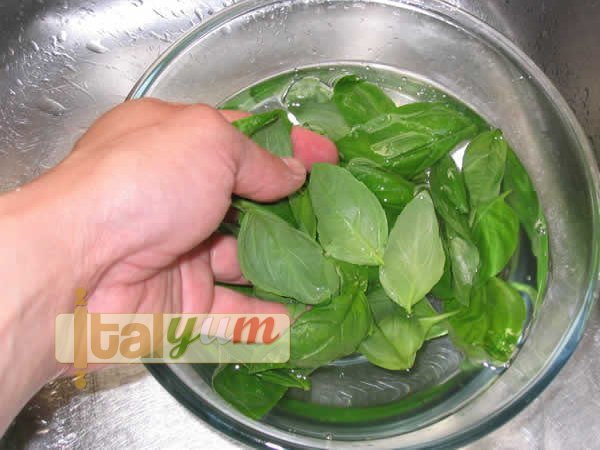
- Lay the basil leaves onto kitchen paper and let them to dry. DO NOT press or pat the leaves with kitchen paper but leave them to dry naturally.
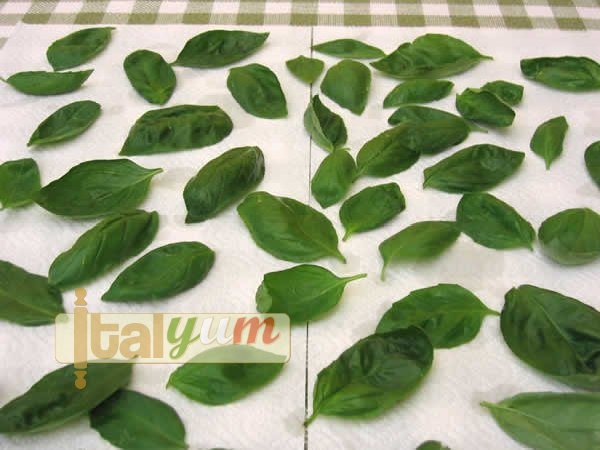
- Cut the clove of garlic longways through its centre, remove and dispose the shoot. Then, roughly chop the clove into a few pieces.
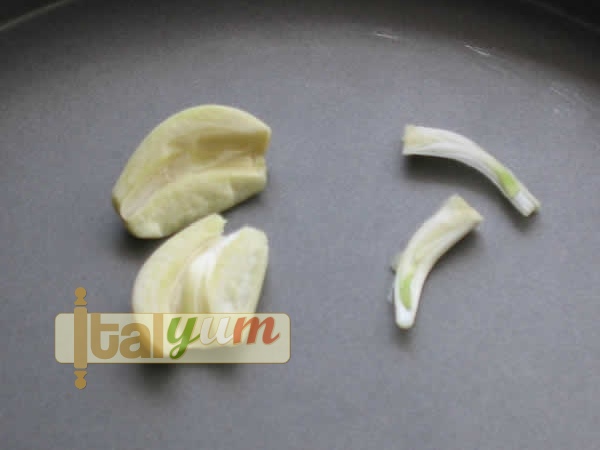
- Firstly, add the pine nuts. The reason we process them first is that they require more time and a high speed to break up properly. We do not want to add the basil at this stage otherwise it will be over blended and the heat generated by the friction may alter the colour and fragrance of the basil.
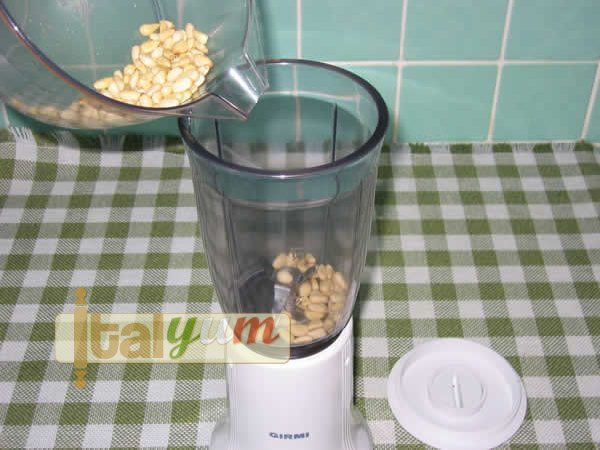
- Once you have blended the pine nuts, add the basil leaves into the blender jug.
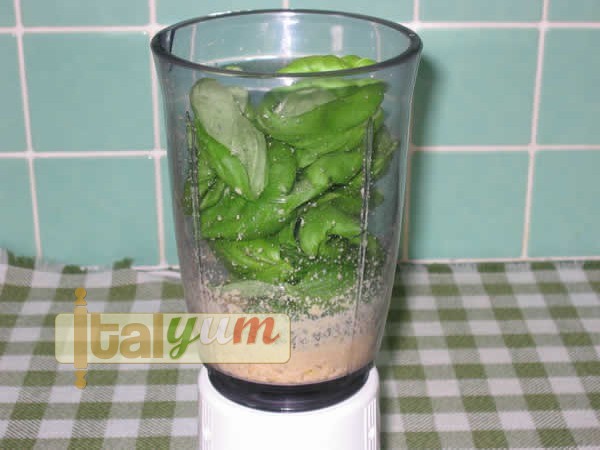
- Also, add the garlic.
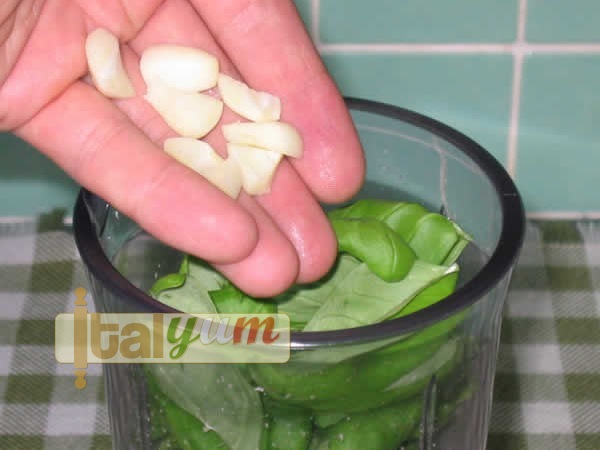
- Start blending, at low speed (if you can adjust the speed of course), and at the same time gradually pour in the olive oil.
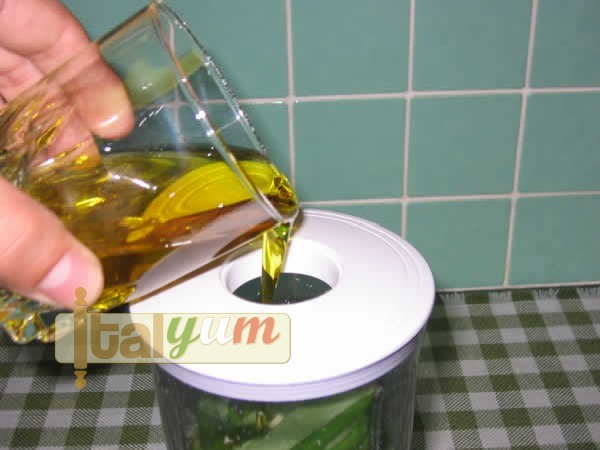
- Add a small quantity of salt to season.
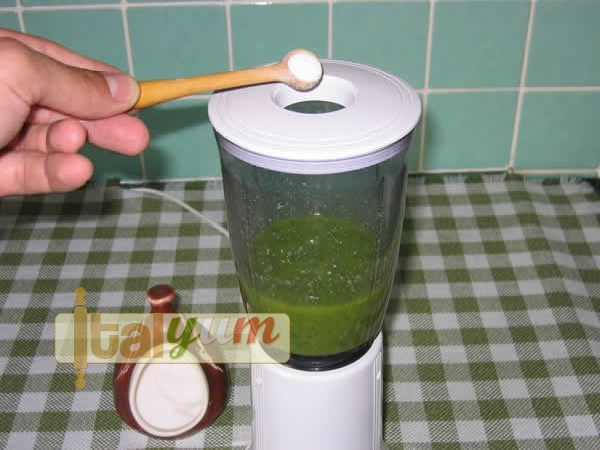
- Add the Pecorino sardo cheese.
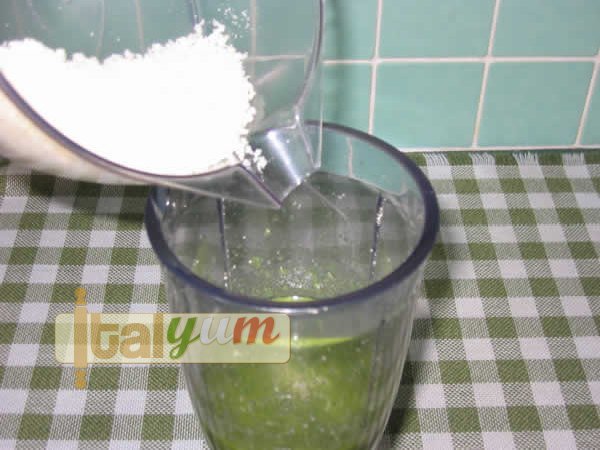
- Add the Parmesan cheese.
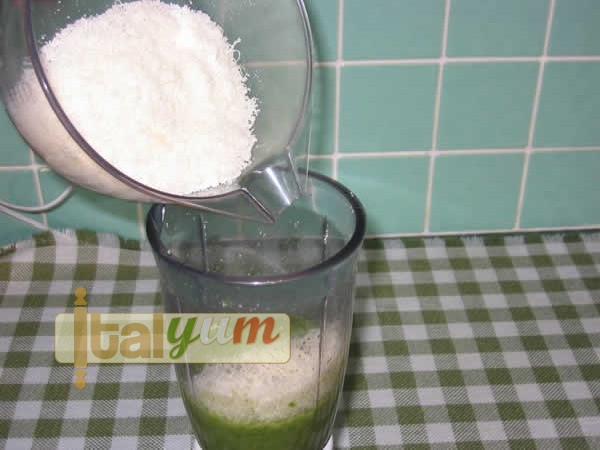
- Now, blend again for a few seconds and then you will have your pesto sauce.Put the pesto into a large bowl, add a spoonful of the boiling water you are using to boil the pasta and then add your drained pasta into the bowl. Stir for few seconds until the pasta is evenly coated and serve.
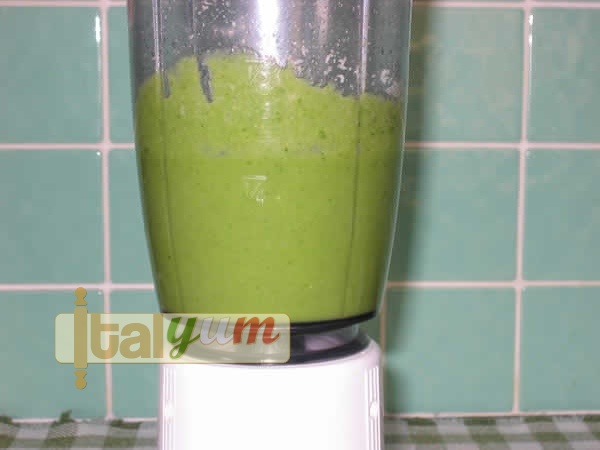
Nutrition
Calories: 650kcal
Tried this recipe?Let us know how it was!

